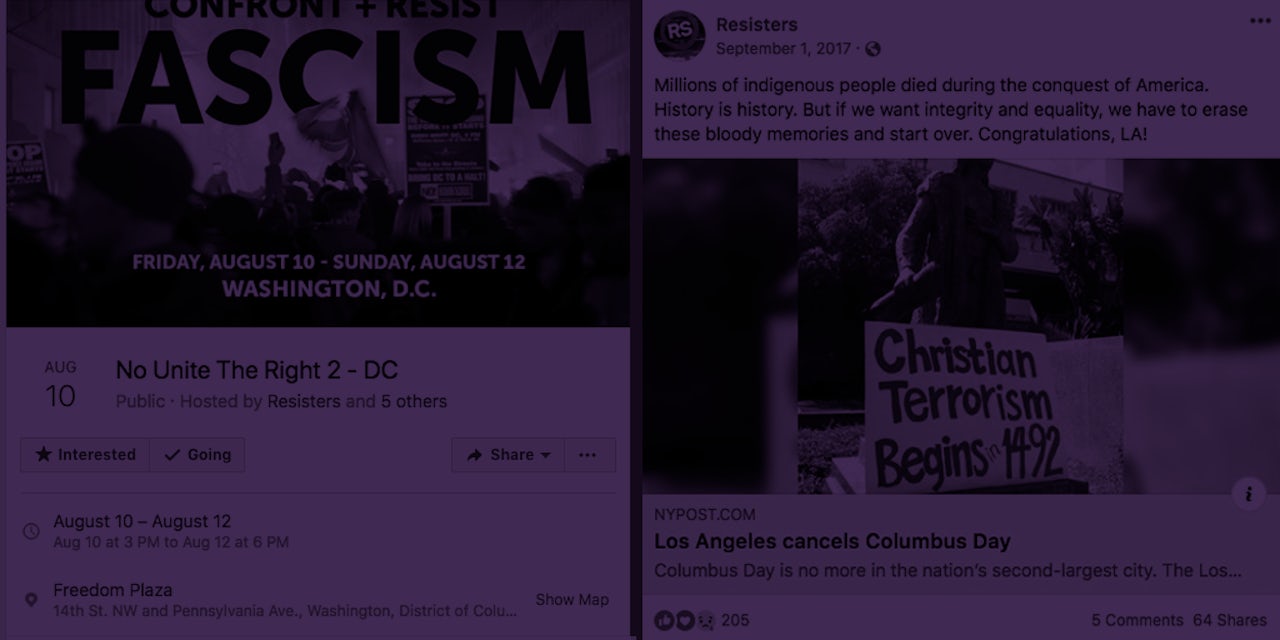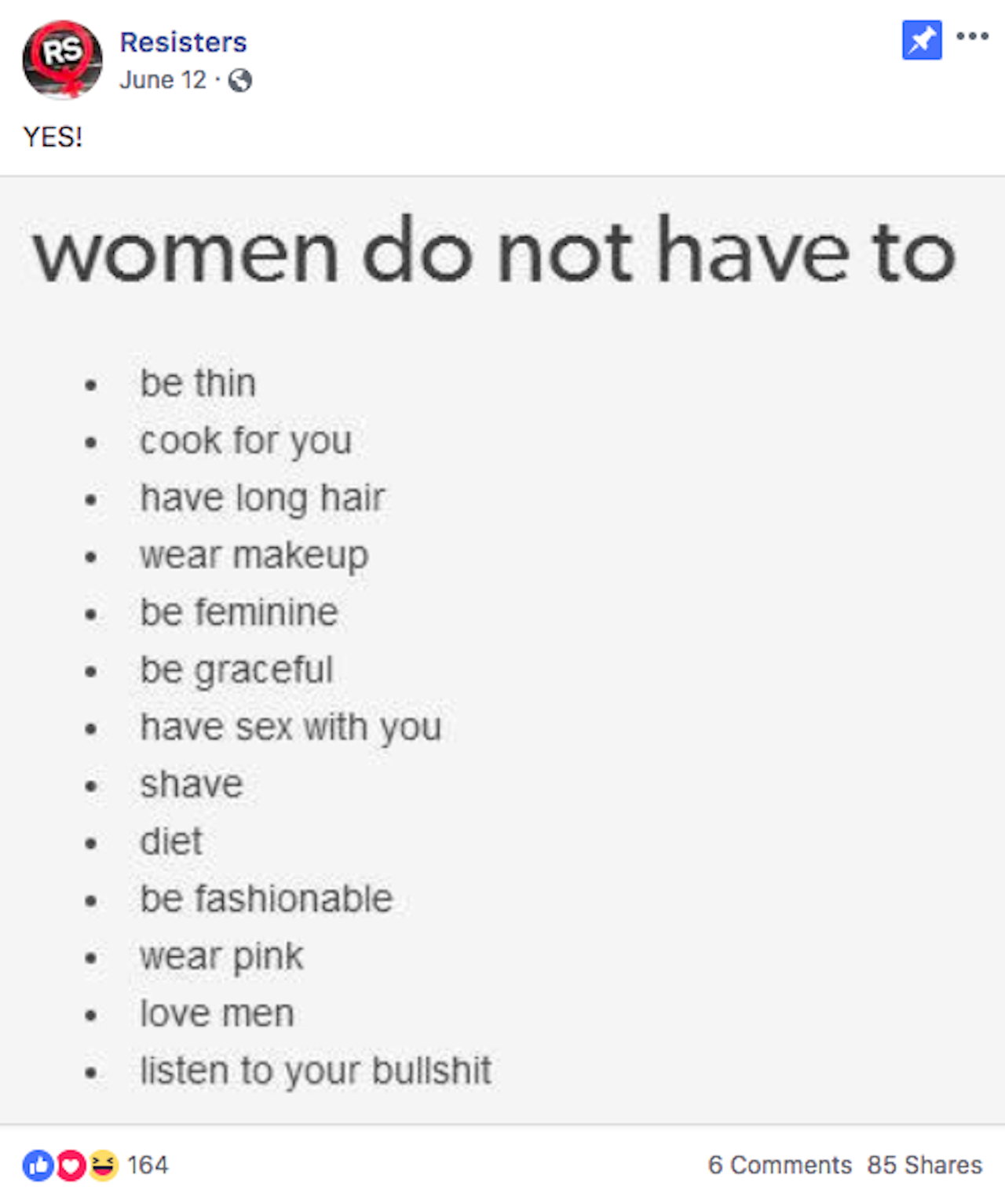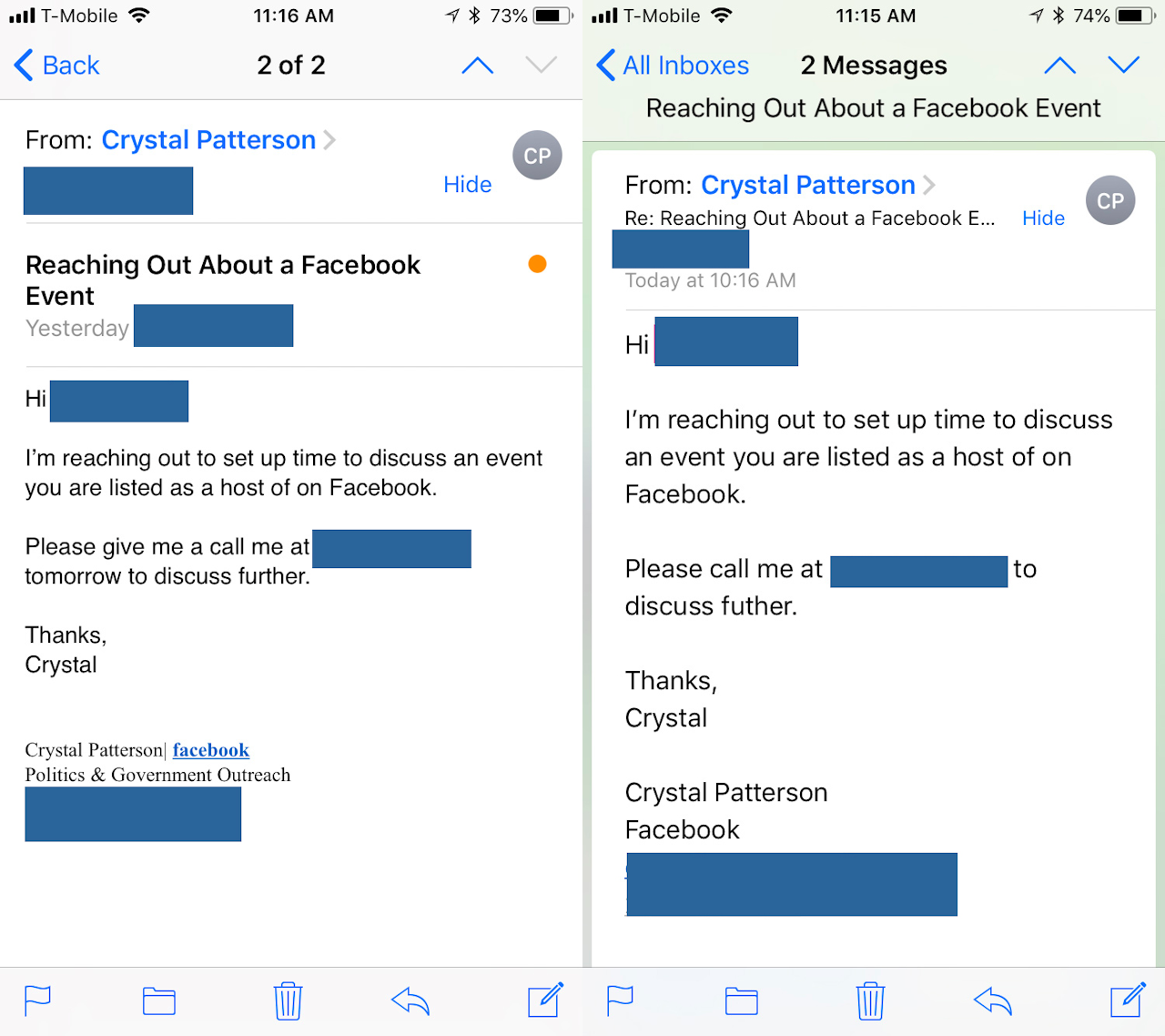Facebook announced on Tuesday that it had identified and deactivated 32 accounts and pages from both Facebook and Instagram, citing their involvement in “coordinated inauthentic behavior” that suggested they were outsiders attempting to influence U.S. politics, according to a report from The New York Times and later confirmed in a Facebook blog post. Facebook said many of the tactics used by the accounts bore a resemblance to those of the Internet Research Agency — a Russian political influence operation that pumped Facebook, Twitter, and other platforms full of propaganda during 2016 U.S. presidential election — but may have attacked too hard, deleting sort-of legitimate events in the process.
The Internet Research Agency (IRA) has a history of instigating real world events through Facebook posts, events, and groups, despite having no physical activists in the U.S. During the 2016 election, the IRA cajoled Trump voters into building a cage on the back of a pickup truck while someone pretended to be an imprisoned Hillary Clinton locked within it. They also manufactured a number of protests while pretending to be members of the Black Lives Matter movement.
The Facebook event “No Unite the Right 2 – DC” was ostensibly a counter protest to white supremacist Jason Kessler’s Unite the Right 2 march scheduled for August 11 in Charlottesville. The event was taken down after the company flagged its creator — a seemingly liberal Facebook page called “Resisters” — for suspicious behavior. While the event was initially created by the alleged fake account, the protest it willed into existence began to be taken seriously by real people — the majority of the coordination, planning, and direction since its creation was the work of a number of real activist groups and individuals in the D.C. area, who don’t agree with Facebook’s decision to shutter the event.
“The Resisters page may have created [the event], but it was also a legitimate Facebook event...for the legitimate purposes of protesting an American-created white supremacist movement,” Dylan Petrohilos, an organizer with Resist This!, one of the four activist groups that was added as an administrator of the “No Unite the Right 2 – DC” by the Resisters page, told The Outline over the phone. At the time of deletion, the event had around 600 RSVPs from Facebook users, 2,000 “Interested” replies, and thousands more participants who were invited but hadn’t yet responded.
“We were posting on it regularly,” said Petrohilos, of the other real activist admins of the event. “We were posting social graphics and videos and other promotional material around it.”
According to Petrohilos, the suspicious Resisters page rose to prominence in the D.C. political scene thanks to the support of Brendan Orsinger, a local activist. The people behind Resisters reached out to Orsinger back in January to see if he’d be interested in co-hosting an event to “Tune Out Trump” during the State of the Union address as part of a cross-promotional endeavor for their similar causes. Orsinger agreed.
“After the #SOTU events i was asked to be an admin on the resisters page,” wrote Orsinger in a Tweet on the matter. “Seeing the followership & platform they could provide to help amplify local DC organizing—and checked through the page for anything that would indicate a bot or mal intent—and accepted the invite to admin.” Orsinger added a number of local and national groups as admins of the “No Unite the Right 2 – DC” event, which then catalyzed the actual grassroots organization of the counterprotest.
“It did eventually take on a flair where local organizers were driving the event and it wasn't being driven by the Resisters page, which largely seemed to me to be a meme page and nothing else,” recalled Petrohilos. After a number of legitimate D.C. political activist groups were added, the Resisters page more or less faded into the background, he explained. Very little communication or direction regarding the event came from the people behind Resisters.
“[The Resisters page] was not a serious organizing hub that spread ideas,” said Petrohilos. “I think there were plenty of organizers on that [event] that were legitimate people who were organizing legitimate things.”
Save some lame memes, nothing about the Resisters page stood out as odd or suspicious to Petrohilos or Orsinger. “There were a couple people I know that did have direct communication with the Resisters page,” said Orsinger. “It did not [seem sketchy.] It just seemed like normal interactions, like ‘Hey, do you want to help me admin this page?’ And then they'd use it for legitimate reasons like supporting local events in Washington, D.C. or Washington, D.C. organizers.”
“i also checked out the account of the [Resisters] person who represented themselves as legitimate, and seemed fine,” wrote Orsinger in a Tweet. “i messaged with them on FB messenger over the past 7 months but never met them in person.”
Around 9pm Monday evening, Orsinger received an email from Facebook’s Government and Politics Outreach Manager, Crystal Patterson.
I'm reaching out to set up time to discuss an even you are listed as a host of on Facebook.
Please give me a call at [REDACTED] tomorrow to discuss further.
Thanks,
Crystal
At 10:16am the next morning, Orsinger received a follow-up message saying the exact same thing. According to Petrohilos, Orsinger didn’t check his inbox during that time on account of it being outside of traditional work hours. Petrohilos received an identical email from Patterson a couple hours later. By the time they had read the email, the Facebook event had been deactivated.
“The event was created by Resisters but was used for legitimate protest organizing and promotion,” wrote Smash Racism DC, an activist group that had been an early admin on the page, in a Facebook post on the matter. “Specifically, local organizers put our own messaging, graphics, and videos in it. We did not promote anyone's views except our own.”
In a sense, this complicated series of events suggests that Facebook’s crackdown on inauthentic nefarious accounts is working, if sort of counterintuitively: Bad actors who used to be able to manufacture much more fringe activity and thrust it at opposing sides now have to blend so well as to adopt completely plausible and legitimate causes. The Resisters page wasn’t conjuring a movement out of thin air, or swaying minds with the power of its aggressively average memes, but just... helping already established activist groups organize. Which is a hilariously wholesome way to go about “political influence.” But now Facebook will have to come up with yet another answer to a question it’s barely prepared to deal with: can illegitimate political activity on its platform become legitimate, and if so, when, and how?



